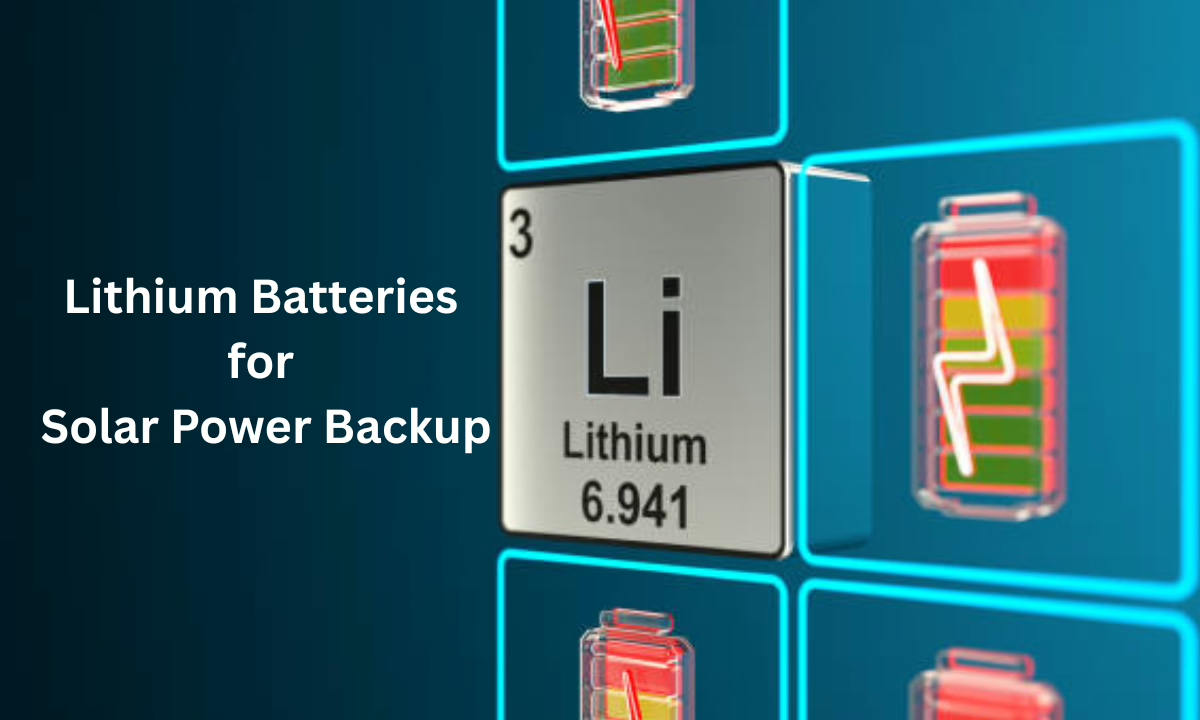In the fast-evolving landscape of renewable energy, Lithium Batteries have become a cornerstone for efficient and reliable solar power backup systems. These advanced storage solutions have increasingly outperformed traditional lead-acid alternatives, offering unmatched advantages in terms of performance, durability, and energy efficiency. As more homeowners and businesses shift toward sustainable energy, understanding the benefits of integrating lithium batteries for inverter and solar battery applications is essential for informed decision-making.
Whether it’s for residential or commercial purposes, the integration of lithium ion batteries for inverters in solar setups is proving to be a game-changer in ensuring seamless power supply and optimizing energy use.
1. Superior Energy Efficiency
One of the most significant benefits of lithium batteries in solar power backup systems is their high energy efficiency. With a higher depth of discharge and round-trip efficiency, these batteries ensure that more stored energy is used for powering appliances and systems.
Lithium ion batteries for inverters minimize energy loss during the charge and discharge cycles, ensuring that the energy harvested from the sun is utilized to its fullest potential. This increased efficiency reduces the dependency on grid power and makes the solar energy system more reliable.
Additionally, the ability of lithium batteries to maintain voltage stability throughout their discharge cycle allows inverters to operate more consistently, ensuring smoother transitions during power outages or peak load periods.
2. Longer Lifespan
Another key advantage of lithium batteries is their extended operational life. Compared to conventional battery technologies, they offer significantly higher charge-discharge cycles, which translates to longer service years.
The longevity of lithium batteries for inverter applications results in reduced replacement frequency, leading to lower long-term operational costs. These batteries are designed to function optimally for many years, even under regular usage, making them ideal for continuous solar power storage needs.
Furthermore, their low self-discharge rate means that energy remains stored for longer periods without significant loss, ensuring backup availability whenever needed. This characteristic enhances the system’s reliability and provides consistent power availability.
3. Compact Size and Lightweight Design
Space and weight are often major considerations when setting up a solar backup system. Lithium batteries offer a compact, lightweight design that simplifies installation and optimizes space utilization.
Unlike bulky traditional batteries, solar battery units with lithium chemistry take up less room, making them suitable for indoor and limited-space outdoor installations. Their reduced weight also makes handling and transportation easier, facilitating faster installation and maintenance procedures.
This feature becomes particularly useful in off-grid installations where portability and system flexibility are crucial. The compact form of lithium ion batteries for inverters enables integration into various system configurations, adapting to diverse power storage needs without compromising performance.
4. Faster Charging and Higher Discharge Rates
The speed of energy storage and delivery is critical in solar backup systems. Lithium batteries support rapid charging, enabling quicker energy absorption during peak solar production hours. This allows users to maximize their solar energy usage within shorter timeframes.
On the discharge side, lithium batteries for inverter applications can release stored energy at higher rates, supporting high-demand appliances and ensuring uninterrupted power flow during outages. This capability ensures that both essential and non-essential loads can be managed efficiently.
The fast charging and discharging nature of lithium ion batteries for inverters means greater system responsiveness, especially in dynamic energy consumption environments. It also reduces the strain on inverters, prolonging the life of the entire solar setup.
5. Low Maintenance and Enhanced Safety
Lithium batteries are widely known for their low maintenance requirements. Unlike traditional battery systems, they do not require regular water topping or equalization charges, reducing user intervention and maintenance costs.
Their built-in Battery Management Systems (BMS) monitor voltage, temperature, and current, providing enhanced safety and prolonging battery life. The absence of sulfation and corrosion further ensures that lithium batteries for inverter functions remain consistent.
Additionally, these batteries are sealed and operate without emitting gases, making them environmentally friendly and safe for indoor usage. The improved safety profile of lithium ion batteries for inverters makes them a preferred choice for residential and commercial solar storage systems.
Conclusion: Why Lithium Batteries Are the Future of Solar Power Backup
The transition to renewable energy systems has brought the need for efficient and durable storage solutions into sharp focus. Lithium Batteries have emerged as the optimal choice for solar power backup, thanks to their superior energy efficiency, long lifespan, compact design, fast charging capabilities, and low maintenance requirements.
Choosing the right distributor ensures that users get access to reliable, high-performance products that can withstand real-world conditions.
A notable name contributing to this energy revolution is Sunap, a forward-thinking company dedicated to delivering advanced solar energy solutions.
With a focus on innovation and customer satisfaction, Sunap continues to be a trusted partner in India’s clean energy transition.




